Up & Coming Weekly keeps the community informed about elections. As in years past, we’ve reached out to the candidates to give them an opportunity to make their case to you, the voter.
In the following, you will find their responses. You will also find that not every candidate is represented. That was a choice by the candidate. The Fayetteville And Hope Mills candidates were all given the option to participate. Each candidate vying for similar office was asked the exact same set of questions. We have not altered or amended their answers.
Because we believe so strongly in the privilege of voting, we wanted to ensure that you have all the information you need – not only about the candidates and the issues – but also about where, when and how you can vote.
For Cumberland County voters:
• Early one-stop voting is ongoing.
• Saturday, Nov. 4, one-stop voting and same-day registration ends.
• Tuesday, Nov. 7, is the big day. Polls open at 6:30 a.m. and close at 7:30 p.m.
Learn more: www.co.cumberland.nc.us/election_board/voter_info/guide.aspx
Election 2017 Fayetteville Mayoral Candidates
 Nat Robertson
Nat Robertson
UCW: Elected city officials and Cumberland County Commissioners have not been able to agree on who would operate a joint 911 emergency center and continue to be at odds over which sales tax distribution method the county should implement. And now, the county seems to be pushing back on how much money it should devote to the city’s baseball stadium. What will you do specifically to create better communication and cooperation between the two governing bodies?
Robertson: Soon after being elected as Mayor in 2013, recognizing there are many issues between the City and County that needed reconciling, I re-established the City/County Liaison Committee. A contingency of City, County, School Board and Ft. Bragg representatives who can talk about and present ideas back to our respective Boards. We have discussed many common issues and problem solved on issues involving both bodies. A couple of successes from this Committee have been; the creation of the Fayetteville/Cumberland Youth Council and the red light camera agreement.
Both government bodies have different responsibilities, different chartered tasks and different missions to fulfill for our residents. We come together and work toward a common goal when we can. Often time, while best representing our own residents, our jurisdictional responsibilities don’t fit together. This may often appear that we are not able to get along, but that’s not true. As two government bodies, I feel our relationship is as strong now as it has been in decades. I look forward to continuing transparent and open discussions with the County Commissioners both on an individual personal level as well as collectively as governmental bodies.
UCW: The city’s tax base is more dependent on residential properties than any other major city in North Carolina. This is primarily because of Fayetteville’s lack of economic development and our continued failure to attract large corporate headquarters, technology companies and manufacturing firms. What role do you feel the city plays in local economic development?
Robertson: We have had many successes over the past couple of years with attracting jobs to Fayetteville. Since being elected, we have lowered our unemployment rate from 8.9% to 5.6%. This means more people are working and our local economy has picked up. Good news! But, we still have work to do… I continue to work with the Fayetteville Cumberland Economic Development Corporation to court companies and industry to look at Fayetteville for their future home. And for those business who are already here? I continue my pledge to make our City a friendlier place for businesses to do business. When our local businesses grow organically, we all win!
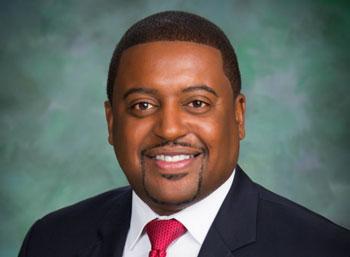 Mitch Colvin
Mitch Colvin
UCW: Elected city officials and Cumberland County Commissioners have not been able to agree on who would operate a joint 911 emergency center and continue to be at odds over which sales tax distribution method the county should implement. And now, the county seems to be pushing back on how much money it should devote to the city’s baseball stadium. What will you do specifically to create better communication and cooperation between the two governing bodies?
Colvin: A harmonious relationship between the governmental bodies is critical in any community. The problems of community are too large for any one governing body to handle alone. In order for our city to be successful we must work together.
During my four years on Council I have witnessed first hand the disconnect between the City and the county. As a result I have made this my number one platform issue during the campaign. If
I am elected Mayor, I would propose a joint committee consisting of the leaders from the City Council, County Commission,School Board, Fayetteville State, Methodist College, Fayetteville Technical College, Cape Fear Valley Health system and Ft.Bragg to discuss the direction of our community.
Furthermore, I would encourage Council to ask the County Commissioners and the School Board to Annual Joint strategic planning meetings. Areas like joint purchasing in our procurement and service consolidation could save tax payers Billions of dollars over time.
This lack of coordination has and continues to cost our citizens millions of dollars in loss opportunities.
Projects like Rooms To Go and Sanderson Farms have cost us thousands of Jobs.
The divisive politics that has existed with some of our leaders has to stop. We must have leadership willing to build bridges not walls.
UCW: The city’s tax base is more dependent on residential properties than any other major city in North Carolina. This is primarily because of Fayetteville’s lack of economic development and our continued failure to attract large corporate headquarters, technology companies and manufacturing firms. What role do you feel the city plays in local economic development?
Colvin: To correct this problem we must use a comprehensive approach. We Must first begin by updating the 2012 Garner Report. This was an in depth analysis of our community highlighting our strengths and weaknesses. This report also tells us the areas and the industries that work best with our population’s skill set. We should begin to aggressively go after companies in these areas.
At the same time I would convene a Work Force Summit to begin to strengthen our work force. Thai is critical in the recruitment of industry. Our steady supply of trained laborers from the military has not been marketed in an effective way.
Also we have failed to take advantage of our location. We are only 83 miles from Wilmington. An inland terminal to distribute goods and cargo would provide a boost to our economy. For example, Atlanta/Savannah, Charleston/ Dillon, are a few examples.
Furthermore, I would also advocate for an expansion in the cargo flights in our airport. The ability to move merchandise around is very attractive to large industry.
Finally, the city must rebrand and redefine who we are regionally. All of our municipal peers have a regional identity. For instance, Charlotte/Mecklenburg is the Financial Hub, Raleigh/Durham Tech and Medical, etc. Once we define ourselves we promote the brand, nationally and internationally. After all we live in a Global economy. The Mayor should be on the front lines with our economic development team as an ambassador for our city. Let’s get started.
Election 2017 Fayetteville City Council Candidates
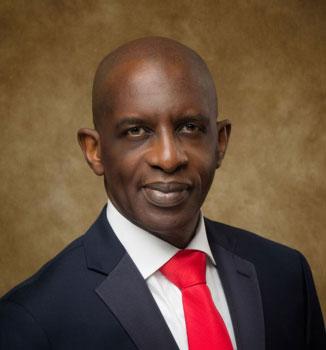 Curtis Brown
Curtis Brown
District 1
UCW: Elected city officials and Cumberland County Commissioners have not been able to agree on who would operate a joint 911 emergency center and continue to be at odds over which sales tax distribution method the county should implement. And now, the county seems to be pushing back on how much money it should devote to the city’s baseball stadium. What will you do specifically to create better communication and cooperation between the two governing bodies?
Brown: While I fully understand the differences in the roles and responsibilities of city and county government. I would highly recommend, both city council and the county commissioners schedule an off-site summit to discuss unifying, synchroning and maximing our efforts to better serve all of the constituents we all represent. To help city and county government better understand that we are stronger and more effective together, I would strongly advocate for this summit to include the FLIPPEN GROUP with both city council and the county commissioners attending.
The FLIPPEN GROUP with over 25 years of experience has mastered the art and science of optimizing team performance. They have worked with some of the largest state and federal government agencies and organizations in the world. They fully understand how to help government leader’s work and serve more effectively together. The FLIPPEN GROUP further understands that people represent the greatest investment opportunity in any government agency or organization. Additionally, the FLIPPEN GROUP has identified that people are also the greatest challenge for leaders. Here’s how the FLIPPEN GROUP helps. Their behavioral analytics tools, combined with expert coaching, helps government leaders solve the complex people issues that make serving in the public sector challenging. Even the strongest government teams can perform better. The FLIPPEN GROUP combines the science of customized team behavioral analytics with the art of engaging in transformational workshops, all supported by intentional follow-up processes to maintain our teamwork momentum in both city and county government.
Upon the completion of this workshop we will be able to identify the seemingly “invisible” behaviors in our two governments that hinder performance, delay projects and slow down all progress. The process of optimizing the city and county team begins with understanding the needs of both entities and obtaining behavioral data on all city council members and county commissioner’s using the Flippen Profile. Through group workshops and 1-on-1 coaching sessions, both your team’s will develop a customized action plan to leverage individual and team strengths while also breaking constraints. The FLIPPEN GROUP craft a series of briefs, customized follow-up workshops and gradually empower city and county leadership to champion the identified processes internally. My vision for District 1, Fayetteville and Cumberland County is a growing and vibrant world-class place--proud of its diversity and full of life with amenities and activities. I envision a community of cooperative inclusion (Government and Citizens), a community that is flourishing economically with a pristine environment, where all people are safe, healthy and have equitable opportunities for success and happiness. With better communication and cooperation between City council and the County Commissioners we are better and stronger together!!
UCW: The city’s tax base is more dependent on residential properties than any other major city in North Carolina. This is primarily because of Fayetteville’s lack of economic development and our continued failure to attract large corporate headquarters, technology companies and manufacturing firms. What role do you feel the city plays in local economic development?
Brown: The city in partnership with the Economic Development Alliance of Fayetteville & Cumberland County plays a vital role in our overall local economic development. One of the primary factors behind Fayetteville and Cumberland County’s continued economic health and growth is the unusually cooperative relationship between city and county government and the local business community. The work of the Economic Development Alliance of Fayetteville & Cumberland County is just one example of that partnership. When new companies considering our area, see that partnership approach right away they want to know more about our city. New companies are consistently impressed at how well everyone works to streamline the process of permitting, licensing, title work, and developing infrastructure to keep from creating delays. If you’ve ever thought that true cooperation between government and the private sector was impossible, you’ve never done business in Fayetteville and Cumberland County. Having said all of the above, the city must focus on better opportunities to link our educational institutions and veteran administration(VA) to industries to provide viable skills through education and certification that maximizes our citizens’ capabilities. We must incentivize enduring companies and develop a decent incentive package for incoming industries/ businesses. Our city leadership must get out and visit successful cities like North Charleston, SC, to determine cause factors in their overall success in the area of economic development and job creation. We must review and reduce burdensome regulations, permits and codes on small businesses to promote smart economic and industrial growth. Our city government plays a very important role in our overall economic development and must continue to invest in the Economic Development Alliance of Fayetteville & Cumberland County as it has become the heartbeat of our success in the area of Economic growth.
 Kathy Jensen
Kathy Jensen
District 1
UCW: Elected city officials and Cumberland County Commissioners have not been able to agree on who would operate a joint 911 emergency center and continue to be at odds over which sales tax distribution method the county should implement. And now, the county seems to be pushing back on how much money it should devote to the city’s baseball stadium. What will you do specifically to create better communication and cooperation between the two governing bodies?
Jensen: Communication and cooperation between the county and city happen on a daily basis. We have had many successes through the City County liaison monthly meetings. The Fayetteville Cumberland Youth Council, Red light camera program for our school systems, economic development commission, working on homelessness and the merger of parks and recreation years ago are to name just a few. The three subjects you have mentioned are not topics that are not easy fixes with easy answers. I believe that we are very close to an agreement on all three. I was asked to serve on the PWC negotiation committee, because of my willingness to listen with patience and to negotiate. I have said for the past four years, we need to make sure that the decisions we make today are the best decisions for our future.
UCW: The city’s tax base is more dependent on residential properties than any other major city in North Carolina. This is primarily because of Fayetteville’s lack of economic development and our continued failure to attract large corporate headquarters, technology companies and manufacturing firms. What role do you feel the city plays in local economic development?
Jensen: Four years ago, we made a commitment to the residents of Fayetteville to make Economic Development a priority. We have done just that. In collaboration with the county we have formed a new Fayetteville Cumberland Economic Commission. I have had the privilege of serving on that committee for the past year. Losing the Sanderson Farms manufacturing plant has made getting new manufacturing firms in Fayetteville an uphill battle. But as you can see we are steadily making progress. The announcement of our K3 Enterprise partnership that will bring over 30 jobs at approximately $91,000 salary yearly. The addition of the baseball park will bring in over 65 million in new development. Real economic balance is when everyone has the opportunity to work. Fayetteville is moving forward and is succeeding working with our partners, the county commissioners, PWC, and our local state delegation.
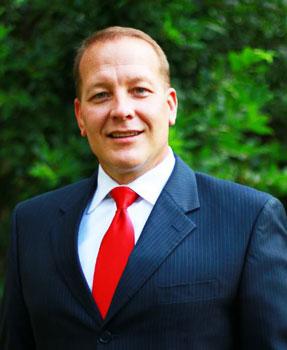 Dan Culliton
Dan Culliton
District 2
UCW: Elected city officials and Cumberland County Commissioners have not been able to agree on who would operate a joint 911 emergency center and continue to be at odds over which sales tax distribution method the county should implement. And now, the county seems to be pushing back on how much money it should devote to the city’s baseball stadium. What will you do specifically to create better communication and cooperation between the two governing bodies?
Culliton: The city of Fayetteville’s 911 Call Center is a Center of Excellence and who’s accreditation’s far surpasses that of the county’s. We would need to ensure these superior standards are maintained if jointly operated. This holds true for the fire and emergency medical services as well, where the demand and higher service level expectations are much greater within the city. This is why the city took back over those services from the county in 2011. Currently, the county’s publicsafety answering point (PSAP) does not hold these same accreditations.
With regards to the county’s sales tax distribution, Fayetteville is by far the largest of the 9 municipalities located within the county. However, by state law, the county commissioners ultimately decide how the funds are distributed, despite that over %80 of the collected sales tax in the county is generated within the city limits of Fayetteville. Another critical factor is the recent annexations that now place a larger financial burden on the city. This includes things like city police protection of over 43,000 residents that the county’s sheriff’s department is no longer responsible for. Despite this, the Sheriff’s department budget increased and no funds from the county were diverted to the city to compensate for this. This is despite the fact that a primary factor for the “Big Bang Annexation” was to get the city above the 200,000 population threshold, which is the benchmark in order for major companies to consider investment in an area, which is mutually beneficial. The bulk of these economic initiatives have also been the burden only the city of Fayetteville has shouldered despite the obvious benefit to the rest of the county.
So it boils down to fairness and an equitable distribution of funds. We need collaboration but in order to achieve that all parties need more objectivity and reasonableness in their assessments. All parties must realize that the city and county are involved in a very symbiotic relationship and therefore our goals should be on parallel paths as our combined future growth are inextricably tied together. All parties need to start looking past the short term and gain a bigger picture of that combined future growth. Only then, with that shared vision, can the city and county grow effectively and for the betterment of all. To this end I am for full financial transparency of each parties positions so that the voters of not only the city but the county can have to opportunity to evaluate their elected officials performance and effectiveness.
I have proven to be a leader who can bring this type of collaboration and consensus building within a diverse group of interests, by finding the common ground and keeping the discussions on track, in order to be effective. This is the type of leadership that is needed, at like no other time in our city/county evolution, as we are experiencing significant growth and have an opportunity to finally realize our collective potential. We need to increase the frequency of face to face meetings with county commissioners and city officials in order to build a rapport both professionally and personally. Regular, combined budgetary meetings should also be the goal in order to keep everyone on the same page with open communication between all. I also believe that a combined bi-annual press announcement would go a long way to show solidarity and improve the citizens faith in their elected officials ability to work together.
UCW: The city’s tax base is more dependent on residential properties than any other major city in North Carolina. This is primarily because of Fayetteville’s lack of economic development and our continued failure to attract large corporate headquarters, technology companies and manufacturing firms. What role do you feel the city plays in local economic development?
Culliton: We need to take a serious look at limiting the burden of the city’s revenue off the backs of the property owners. The people, especially in district 2, already have a hard time making ends meet yet they are not being afforded jobs that allow them to earn a realistic, living wage. It is absolutely dependent upon the city to set an environment that allows job generation to occur. That is a complex process that entails various pieces of the “puzzle” to be in place, as well as collaboration and consensus between the citizens and city officials. It’s imperative that we as a community present a unified front when we are approached by major corporations for potential investment and job creation or we risk others passing over us the next time around. If we want jobs to come here we need to show, beyond a shadow of a doubt, that Fayetteville, NC is Open For Business.
We have undergone a tremendous amount of growth and I wish to see that growth continue, however, I feel we need to ensure it’s “Smart Growth”. As the candidate experience in planning I am well positioned to offer insight and direction on the type of development that benefits the city the most, both in revenue generation and as a catalyst to future economic growth. We should look to promote multi-use projects like that of 300 Hay or the Prince Charles, as these can generate significantly more revenue for the city per acre then a sprawling single use project where the infrastructure investment and maintenance alone can produce a negative revenue situation. The person District 2 picks to represent them on this next council, if they wish to have effective leadership occur, must not only possess the experience but an understanding of these complexities.
Further, we should look to support and stimulate small business as, collectively, they are major employers and economic generators in and of themselves. Small business allows a diverse range of employment opportunities as well. We are a diverse population that make up the All American City so these types of diverse employment opportunities are very important for those with unique or non-traditional skill sets. We need to look at expanding and improving access to vocational programs and ones like the PWC’s STEM program that can produce Job Ready high school graduates and help place them within our local workforce. These programs not only train our young people with needed skills but provide contacts within the community that they may later use upon entering the workforce.
I will also work continuously to encourage hiring Fayetteville First as well as working to encourage a percentage of minority participation. Finally, I will look to promote local businesses to be hired in order to secure those available contracts. I would also look to ensure regular notification of open contracts as well as classes and online resources so that local contractors can learn how these bid processes work in an attempt to level the playing field. I will always support initiatives that look to grow local small business.
As your next District 2 City Councilman, one of my top priorities will be working on multiple levels to attract a variety of both small and large businesses so that everyone can have an equal opportunity in moving their families forward in obtaining their piece of the American Dream.
 Tyrone Williams
Tyrone Williams
District 2
UCW: Elected city officials and Cumberland County Commissioners have not been able to agree on who would operate a joint 911 emergency center and continue to be at odds over which sales tax distribution method the county should implement. And now, the county seems to be pushing back on how much money it should devote to the city’s baseball stadium. What will you do specifically to create better communication and cooperation between the two governing bodies?
Williams: I would first want to meet with fellow members of the city council to discuss how we all should take part in collaboration meetings with the Cumberland County Commissioners. I would then aim to create a standard meeting time and date between myself, fellow council, and all of the Cumberland County Commissioners. In this meeting, I would also involve other key stakeholders such as the Cumberland County School Board members, when needed. These meeting would be a part of our elected official duties, just as work sessions are conducted. I would be transparent with the community on these meetings and make sure that official minutes are taken, recorded, and distributed if asked. I will then update my district and community via email, social media, and any other means of communication to ensure clear messaging. I believe that these proposed meetings must be conducted when there are any projects that cause for a city-county collaboration.
I would push for these collaboration meetings to be open to the public and become a standard procedure when collaboration projects are on the agenda. As citizens you need to be able to hold each vote on City Council and the County Commissioners accountable all the time and not just when it is convenient.
UCW: The city’s tax base is more dependent on residential properties than any other major city in North Carolina. This is primarily because of Fayetteville’s lack of economic development and our continued failure to attract large corporate headquarters, technology companies and manufacturing firms. What role do you feel the city plays in local economic development?
Williams: The city is the local economic development machine. The city is responsible for planning and attracting business. By doing so, we alleviate putting the financial pressure on homeowner’s who simply want a better quality of life. The money that would be spent paying property tax could then be used to patronize a small business, company, or organization in the area. This drives more development.
As a city, we must push for private and public funding to develop and grow small businesses and welcome large business. But, I do think it should not be at the expense of the homeowner’s. We have to look beyond Fayetteville for large funding and prepare our small businesses for expansion within our districts. CEED, FTCC, and the North Carolina Military Business Center are all great local organizations that help prepare small businesses for this growth. We must lean on them to drive local economy and equip them with the tools to win.
We also must prepare our districts for economic development. Neighborhood educational programs, mentorships, interns, and other workforce programs should be planned to bring residents to the table. For example, If we are attracting a technology business or corporate headquarters to come into the district, we should provide workforce opportunities for the residents within the district and the city to become fully trained and job ready to work in that specific business when it opens. This helps raise the average wage earned, lower’s crime, and eventually revitalizes the neighborhood. If they are not homeowners, we want them to be able to be given a chance to buy a home. And if they are already a homeowner, we want them to increase the quality of life in their neighborhood and enjoy their district.
Some areas of the district may not have a problem with wages, but rather need better options within their district to enjoy life. We need to help provide this atmosphere. Each area of my district is different, and as councilman, I can address every area of my district equally to provide a better quality of life for all. My economic development goal will be to encourage residents and businesses to move into District 2. And for the residents and businesses in District 2, my economic development plan is to provide a better life for you and your business.
 Tisha Waddell
Tisha Waddell
District 3
UCW: Elected city officials and Cumberland County Commissioners have not been able to agree on who would operate a joint 911 emergency center and continue to be at odds over which sales tax distribution method the county should implement. And now, the county seems to be pushing back on how much money it should devote to the city’s baseball stadium. What will you do specifically to create better communication and cooperation between the two governing bodies?
Waddell: My experience as a conflict resolution coach would definitely be a plus in working to resolve communication issues and promote cooperation between both governing bodies. The number one recommendation when there is a standoff or obstacle preventing agreement is to encourage active listening. This is where each party makes a conscious effort to understand the complete message being sent by the other. There is an overlap in responsibility regarding the citizens in Fayetteville where the County Commissioners and City Council are concerned and we must maintain the ability to compromise when needed in order to make sure the needs of those citizens are always at the forefront.
UCW: The city’s tax base is more dependent on residential properties than any other major city in North Carolina. This is primarily because of Fayetteville’s lack of economic development and our continued failure to attract large corporate headquarters, technology companies and manufacturing firms. What role do you feel the city plays in local economic development?
Waddell: The City Council is responsible for creating an atmosphere that is conducive for economic expansion. Unfortunately we have not been strategic in planning to encourage growth and development beyond the call centers we have successfully acquired over the past few years. While these are accomplishments, they are limited in the impact they make on our economy, tax revenue and overall quality of life and demonstrate our need to take a close look at the factors that have stunted our progress. When elected, I will be diligent in advocating for the implementation of the recommendations that have been made through numerous studies commissioned by the City Council to determine how we move Fayetteville forward.
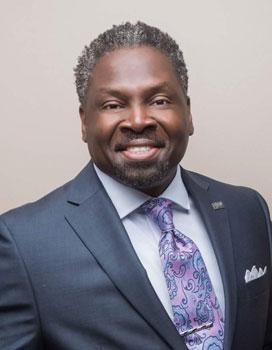 Jeremy Wright
Jeremy Wright
District 3
UCW: Elected city officials and Cumberland County Commissioners have not been able to agree on who would operate a joint 911 emergency center and continue to be at odds over which sales tax distribution method the county should implement. And now, the county seems to be pushing back on how much money it should devote to the city’s baseball stadium. What will you do specifically to create better communication and cooperation between the two governing bodies?
Wright: Often when observing share issue of the city and county, it involves a righteous rant about what is happening in our communities (city and county) and who is to blame. You can pick many of today’s current issues concerning the two and see fingers pointing and accusations of the “other side” being wrong. However, the leaders of both governing bodies are merely produces or our contentious society.
Whether it is conversations with people in line at Starbucks or seeing the headlines in our inbox, there is an underlying trend: we have stopped listening to people who have a different perspective. We are so sure of our own rightness (or “leftness”) that we no longer listen to others. Instead, we are smugly content in our own assumed correctness. This intellectual bullying erodes the sense of community and connectedness in our community.
When another person voices an idea that is different than our own, we fail to acknowledge that the other person may have some truth in what they are saying. I would first encourage both governing bodies to listen and keep an open mind. This will yield to an understand of the assets or benefit each body present to finding a resolve.
UCW: The city’s tax base is more dependent on residential properties than any other major city in North Carolina. This is primarily because of Fayetteville’s lack of economic development and our continued failure to attract large corporate headquarters, technology companies and manufacturing firms. What role do you feel the city plays in local economic development?
Wright: The city plays an important role in economic development. By achieving economies of scale, agglomeration, and localization and providing efficient infrastructure and services through density and concentration in transportation, communications, power, human interactions, water and sanitation the city establishes the substratum on which economic development is built.
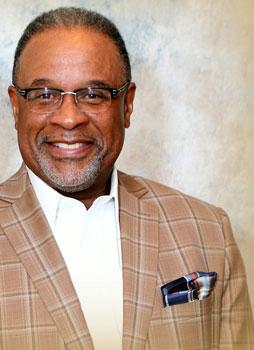 D.J. Haire
D.J. Haire
District 4
UCW: Elected city officials and Cumberland County Commissioners have not been able to agree on who would operate a joint 911 emergency center and continue to be at odds over which sales tax distribution method the county should implement. And now, the county seems to be pushing back on how much money it should devote to the city’s baseball stadium. What will you do specifically to create better communication and cooperation between the two governing bodies?
Haire: It can sometimes be difficult to bring people together that have strong and different opinions on a subject matter that can be beneficial to both sides. A few years back while serving on Council, both bodies came together and had several discussions on how the two boards could combine certain City & County Departments to include Parks and Recreation.
It was a long process, that took many conversations between the City, County, staff and residents, but we eventually moved forward.
I think that open dialogue is a “must” even where there are non-agreements. I would suggest that not only we have combine full body meetings, but also small meetings, or one on one meetings, and even social gatherings between the two boards. This can help build trust, better communication, and better mutual understandings. I have found in my on business negotiations that sometimes social gatherings help to open up better dialogue. I would pursue these actions.
There’s always give and take, but we have to continue forward progress for the citizens that we represent.
UCW: The city’s tax base is more dependent on residential properties than any other major city in North Carolina. This is primarily because of Fayetteville’s lack of economic development and our continued failure to attract large corporate headquarters, technology companies and manufacturing firms. What role do you feel the city plays in local economic development?
Haire: I feel that our city plays a major role in our local economic development. When negotiating with future investors or our own local stakeholder investors, we should stay open to tweaking existing policy’s that may hinder growth. We should continue to help create an environment of a business friendly city.
I was apart of the initiative to hire our very first Federal Lobbyist. I think we should continue with that investment on the State and Federal level. I also think that our economic development growth is not just seeking larger companies to our city. We should continue supporting our “Hire Fayetteville First” priority, where we invest in our local and future companies in every area so that they can grow, hire and expand.
We should also continue working with our veteran population that brings an abundance of skills to our workforce market. There should also be full collaboration with our Education System, working together on how to better equip our up and coming work force.
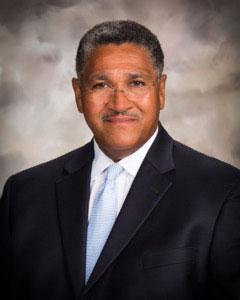 Chalmers McDougald
Chalmers McDougald
District 4
UCW: Elected city officials and Cumberland County Commissioners have not been able to agree on who would operate a joint 911 emergency center and continue to be at odds over which sales tax distribution method the county should implement. And now, the county seems to be pushing back on how much money it should devote to the city’s baseball stadium. What will you do specifically to create better communication and cooperation between the two governing bodies?
McDougald: Better Communications start with simple discussion of what we see our respective bodies doing for the people we represent. At the end of the day the majority of people we all represent are all the same people. I believe we all want to do the best job we can for the citizens. However, until commonsense dialogue happen we will not see a coming together of the respective governing bodies. I will help in fostering a commonsense dialogue between the governing bodies, to assist us in developing a compromise, and thus meeting the needs of the people we all represent.
UCW: The city’s tax base is more dependent on residential properties than any other major city in North Carolina. This is primarily because of Fayetteville’s lack of economic development and our continued failure to attract large corporate headquarters, technology companies and manufacturing firms. What role do you feel the city plays in local economic development?
McDougald: The role of the city in economic development is as vital as any other governmental or nongovernmental entity. We all want to create viable opportunities for our citizens to live, work and play. Economic development is a key part of that equation. Good jobs that pay healthy wages are more important than the industries that decide to locate in the city. The decision to locate in Fayetteville is not the city’s to make, but the business that has explored the opportunity to come here. I know first-hand that Fayetteville has given everything it has to give to attract those businesses that come looking. The major difficulty for the governing body is not knowing exactly why a company does or does not locate here in most cases. The city has many roles in local economic development, such as funding, negotiating terms, and helping business to achieve success.
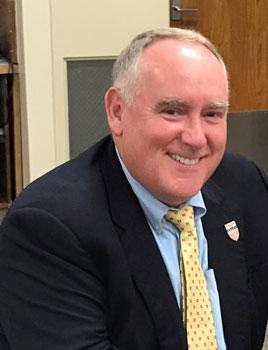 Johnny Dawkins
Johnny Dawkins
District 5
UCW: Elected city officials and Cumberland County Commissioners have not been able to agree on who would operate a joint 911 emergency center and continue to be at odds over which sales tax distribution method the county should implement. And now, the county seems to be pushing back on how much money it should devote to the city’s baseball stadium. What will you do specifically to create better communication and cooperation between the two governing bodies?
Dawkins: The first thing the City Council and the County Commissioners must do, is to agree to meet monthly for the next year. Then, after a year, we may be able to move to a quarterly joint meeting, as was done when I was previously on the City Council. I have proposed a dinner meeting, but if lunch works better, for the majority, then we should meet at lunch. I’ve found that you shouldn’t talk, when you have food in your mouth. We have two ears and one mouth, and we should use them accordingly.
Each member of the City Council and the County Commission must understand, and must appreciate, the needs of the city and the county. With better understanding, and with mutual respect, we should be able to iron out our differences, and we should be able to create solutions, which will best serve all of our citizens. Open and transparent meetings, on a regular schedule, is what I recommend.
On the issue of the 911 Emergency Center: the city is fully accredited, and the county’s 911 center has a lapsed accreditation. The city needs to operate the 911 center for the county, because the 911 center is a core competency of the city. The county staff, earlier, even recommended the city operate the 911 center.
On the issue of the sales tax distribution: I favor a multi-year phase out of the agreement made over 10 years ago, to go back to the distribution which will be most fair to Fayetteville. The majority of the sales, generating sales tax revenue, in Cumberland County, occur in the city of Fayetteville. Yet, the change should not be immediate, because the county and the other municipalities need five to seven years to prepare. Plus, by that time period, the county and the other municipalities should have substantial sales and economic growth to offset any reduction in sales tax revenue, which they are receiving today.
On the issue of the new baseball stadium: The property tax revenue amounts generated by the over $60 Million of new private investment, around the baseball stadium, will benefit the county by over 50% more than the city. My hope is the county will realize this new property tax revenue, and offer to assist the city in paying for this new baseball stadium.
UCW: The city’s tax base is more dependent on residential properties than any other major city in North Carolina. This is primarily because of Fayetteville’s lack of economic development and our continued failure to attract large corporate headquarters, technology companies and manufacturing firms. What role do you feel the city plays in local economic development?
Dawkins: The city’s primary role is to create an environment for private enterprise to take risks, create jobs, and succeed in whatever business endeavor undertaken. If we are hoping to bring new industry to our area, the city should support the Fayetteville Cumberland County Economic Development Corporation. The FCEDC must work closely with the federal Department of Commerce and the state of NC Commerce Department, the county of Cumberland, the Chamber of Commerce, and the city staff to create an attractive package to bring new industry and jobs to Fayetteville. They must leverage our job-ready, highly educated members of the military, when they separate or retire from the US Army or the US Air Force. Moreover, FSU, FTCC, and Methodist University are graduating highly educated, energetic young people, who are ready to start their careers. If we don’t have job opportunities available for them or for the military separating or retiring, then they move to other cities.
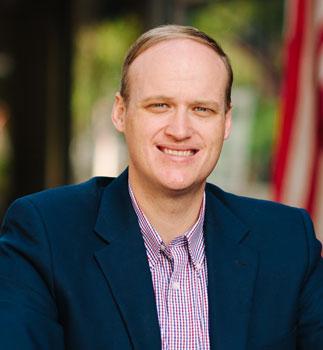 Henry Tyson
Henry Tyson
District 5
UCW: Elected city officials and Cumberland County Commissioners have not been able to agree on who would operate a joint 911 emergency center and continue to be at odds over which sales tax distribution method the county should implement. And now, the county seems to be pushing back on how much money it should devote to the city’s baseball stadium. What will you do specifically to create better communication and cooperation between the two governing bodies?
Tyson: Government should be a community resource and use tax dollars effectively to not waste taxpayers’ money. It is most important for our residents to receive the services that meet the needs within their individual communities. If there is a prudent possibility to merge services, the City and County must share the burden, responsibility, and services to save funds. Ongoing communication and cooperation between elected boards will improve our community and not overtax our city and county residents with duplicate services. The challenges with implementation are two distinct elected bodies with differing statutory and constitutional requirements, differing philosophies, and unique budget goals. The county is mandated by the state to provide funding and maintain: social service programs, hospital & EMS services, mental health services, our school system, health department, the sheriff’s department, and our judicial facilities. This mandated funding makes some of the county’s budgetary spending non-discretionary. Our city government provides key infrastructure like storm water control, city street maintenance, and other services like fire protection services. I stand ready to work with our commissioners on the areas
of community where these services overlap, like our parks and recreation departments, to make sound fiscal decisions. My business success requires me to bring parties together. This experience will help facilitate agreement among all elected officials.
UCW: The city’s tax base is more dependent on residential properties than any other major city in North Carolina. This is primarily because of Fayetteville’s lack of economic development and our continued failure to attract large corporate headquarters, technology companies and manufacturing firms. What role do you feel the city plays in local economic development?
Tyson: If Fayetteville is to successfully compete with Raleigh, Charlotte, Greensboro, and other major cities, our priority is to pursue and attract new job creators and new opportunities for our residents. Residents, stakeholders and leaders in the private sector must create opportunities, with a work strong work force and educational experiences that will attract and keep good paying companies. As we attract new businesses, provide new homes and develop new amenities, regulations must be tailored to meet our needs. Economic development must engage the entire community, educational institutions, the private sector, and City and County governments to focus on government as an asset and not a hindrance to growth. Having a competitive tax base and structure, giving law enforcement tools to help make the city safe and providing needed amenities with our hard-working work force will provide us the advantage.
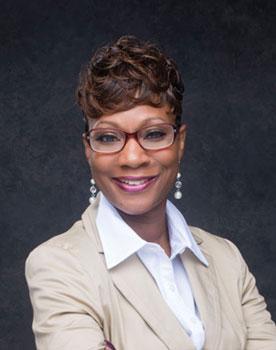 Toni Stewart
Toni Stewart
District 6
UCW: Elected city officials and Cumberland County Commissioners have not been able to agree on who would operate a joint 911 emergency center and continue to be at odds over which sales tax distribution method the county should implement. And now, the county seems to be pushing back on how much money it should devote to the city’s baseball stadium. What will you do specifically to create better communication and cooperation between the two governing bodies?
Stewart: Unfortunately, the city and county have had a reputation of being unwilling or unable to agree and communicate on matters that ultimately affect the citizens. What all the members of the county and city must keep in mind is everything that they do is about those that we serve and not about personal agendas, special interest groups, political advancement or who’s coming out on top. Effective productive communication with the best interest of the citizens should be at the forefront of each and every endeavor that requires a joint effort. To ensure that effective and productive communication takes place, I would use the teammate approach. It must be understood that on joint endeavors, we need to operate as a team. We all have a role to play, but our ultimate goal is for Fayetteville to win. Listening to our teammates, understanding what contributions each member brings and being willing to compromise will ensure a WIN for Fayetteville.
UCW: The city’s tax base is more dependent on residential properties than any other major city in North Carolina. This is primarily because of Fayetteville’s lack of economic development and our continued failure to attract large corporate headquarters, technology companies and manufacturing firms. What role do you feel the city plays in local economic development?
Stewart: When a business looks to expand or open in a new city it considers everything from the tax rates to the quality of life, therefore our city has played a major role in the lack of economic development in our city. As a city we have not done well in marketing our professional workforce. If we are going to attract large corporate headquarters, technology companies and manufacturing firms we must do better at marketing our workforce, providing incentives for businesses and improving our quality of life in order to attract the businesses that we so desperately need.
 Trevone McNeill
Trevone McNeill
District 7
UCW: Elected city officials and Cumberland County Commissioners have not been able to agree on who would operate a joint 911 emergency center and continue to be at odds over which sales tax distribution method the county should implement. And now, the county seems to be pushing back on how much money it should devote to the city’s baseball stadium. What will you do specifically to create better communication and cooperation between the two governing bodies?
McNeill: I believe that we are responsible to the people when elected. The thing that will bring both governing bodies together to agree and make the progress needed will be both parties coming to the table with one goal in mind- the quality of life for those who elected us. I’ve stated many times since being on this campaign trail that I’m a firm believer of being a voice for the people. I believe that the people make the decision we are just the voice for the the resource to help push the decision that best benefits the progress of our communities. In the end, I must remain true to my constituents and my convictions which hold me accountable to every individual who’d vote me into office. Doing so keeps me in position to help see our governing bodies work together for the benefit of all the people.
UCW: The city’s tax base is more dependent on residential properties than any other major city in North Carolina. This is primarily because of Fayetteville’s lack of economic development and our continued failure to attract large corporate headquarters, technology companies and manufacturing firms. What role do you feel the city plays in local economic development?
McNeill: I believe that our city not only plays a major role, but the primary role in our economic development. It should be the goal from this moment forward of our city government to provide economic security for families in our communities. We should focus on providing economic growth that will allow single parents to be secure in their ability to financially care for their families, build promising futures for their children, and bring to our communities a greater investment than they were first able to make. Our city should focus on paving avenues of opportunity and preparation for our citizens to be positioned for career focused economic development and expansion.
 John Miner
John Miner
District 8
UCW: Elected city officials and Cumberland County Commissioners have not been able to agree on who would operate a joint 911 emergency center and continue to be at odds over which sales tax distribution method the county should implement. And now, the county seems to be pushing back on how much money it should devote to the city’s baseball stadium. What will you do specifically to create better communication and cooperation between the two governing bodies?
Miner: The first thing the City and the County must do is put their egos aside and remember why they hold the positions they were elected to by the people. Secondly, in order to create a better level of communication between the two governing bodies, each body must have a clear understanding of what its role is in the projects in question. The issue that I see is a control issue and that issue arises when clear expectations are not understood. The City and the County bring these matters again before the people and LISTEN to the voters. What are the people saying about these items? How do the people feel? We constantly forget that we serve at the PLEASURE and DIRECTION of the people.
It’s not about us, it is and SHOULD always be about the people. The people of this City were and still are hard pressed against the baseball stadium and the majority of them were not a part of the deliberation process and those who were and who voiced their objections were utterly ignored. There is a silent majority that demands to be heard, and if the City and the County would simply learn to listen to those voices crying out across this City and County we would have less friction between these two elected bodies. As far as the Joint 911 Center is concerned. The City’s 911 Center along with the County’s are both about $15M away from being compliant, which would place a roughly $30M financial burden on the two bodies combined, which will eventually be pushed to the people for repayment. However, the city’s system is fully accredited as is not the case with the County.
I believe that in this case, the City should maintain jurisdiction over the 911 Center if and when it was to become joined. If they come together that would alleviate about $15M worth of financial burden on taxpayers. I believe that they should also strongly consider Ft. Bragg in that partnering equation, which would help to minimize 911 misfires that take place when certain calls to 911 are made and are routed to the wrong dispatch center simply because the systems as with the City and County don’t communicate with each other. As far as which sales tax distribution the County should implement. Again, for me, it always goes back to the people. Which implementation would be less painful and more beneficial to the citizens and residents? The people should never suffer because those they elected are incapable of doing what they were tasked to do on Election Day.
UCW: The city’s tax base is more dependent on residential properties than any other major city in North Carolina. This is primarily because of Fayetteville’s lack of economic development and our continued failure to attract large corporate headquarters, technology companies and manufacturing firms. What role do you feel the city plays in local economic development?
Miner: I feel the City plays a Major role in the local economic development and/or the lack thereof. Fayetteville seems to have an inclusion problem. The reason I believe that Fayetteville can’t or has a hard time convincing major corporations to come to the City and headquarter here is that Fayetteville does not know how to capitalize on the resources that it already has. You have to be able to convince board members and shareholders and stakeholders that your municipality is conducive for growth. Are people coming to your city and planting there which is good for the corporate bottom-line or is this an environment with a high turnover rate.
High population turnovers are never good for the corporate bottomline because corporations have a fiduciary responsibility to shareholders and stakeholders and population instability makes them nervous. Also, what is the workforce comprised of? If it is too expensive to hire and train your employable workforce you will send corporations in the other direction. You must have a well-balanced workforce. When your workforce is too top heavy corporate leaders begin to fear your market and move on elsewhere to a move user-friendly market. If Fayetteville wants to be attractive to major corporations seeking a new place to call home we MUST ensure that they have something worth coming home too and that the people who will occupy positions within these corporations are properly, trained and ready to meet the corporate demands that accompany such a corporate transition.
 How to resolve AdBlock issue?
How to resolve AdBlock issue?  How to resolve AdBlock issue?
How to resolve AdBlock issue? 


 How to resolve AdBlock issue?
How to resolve AdBlock issue?  How to resolve AdBlock issue?
How to resolve AdBlock issue?  How to resolve AdBlock issue?
How to resolve AdBlock issue?  How to resolve AdBlock issue?
How to resolve AdBlock issue?  How to resolve AdBlock issue?
How to resolve AdBlock issue? 





